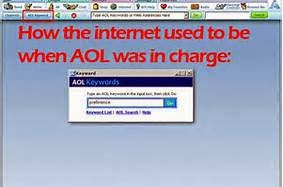SharePoint Saturday New Hampshire 2014
Better late than never. SharePoint Saturday New Hampshire 2014 is happening just over a week from now at the Radisson Nashua Hotel in Nashua, NH on October 18th. (We traditionally have held this event in mid September, so we’re essentially a month late.)
The SharePoint Saturday New Hampshire theme for 2014 is
“Cloud First” means SharePoint developments don’t wait for major releases.
It’s very true, with developments implemented in SharePoint Online, including Delve and social graphing, there’s lots to talk about. Incremental changes they may be, but increments happen at a more rapid pace than they did in the Pre-SharePoint Online world, and of course that has implications for SharePoint on-prem, on premise.
http://www.spsevents.org/city/nh/2014
Granite State NH SharePoint Users Group
Regarding the NH SharePoint Users Group, our schedule remains on the 1st Thursday of the month thru the end of the year with the December meeting being held at the Microsoft Store in Salem. Our speakers and topics remain to be determined.
#NHWPUG is dead…. long live #NHWPAD!
The Granite State Windows Phone Users Group is in the midst of some bit of reorganization. We had long discussed the idea of broadening the focus of the group to include Universal platform app development, and the topic got some hot debate when 8.1 was announced. With the announcement of Windows Threshold as the unified version of Windows that will run on all hardware form factors (pc’s, laptops, tablets, phones, and even Xbox consoles) it’s become clear that we need to redefine our group and refocus it.
With this post, I’ll announce that the group will be called the “Granite State (NH) Windows Platform Application Developers”. I’ll begin re-branding the existing LinkedIn, Facebook, Eventbrite and Meetup sites, and the community app. We’ll continue to support Windows Phone 8 app developers, but our focus will move to supporting community evangelism of developers in the Windows App Store space.
I want to thank the my new teammates at BlueMetal for putting up with my agonizing over this change somewhat openly within the team’s internal discussion, and for their support. I’m not worthy, but I can’t help but think it’s a huge win for the Granite State SPUG and WPAD groups, and the greater New England technology community.
Our next meeting will be in November, but we’ll get that announced soon.
Regarding the SPSNH schedule change…. To make a long story short SharePoint Conference 2014 pushed off SharePoint TechCon SF, which then push SPTechCon Boston right into SharePoint Saturday New Hampshire’s traditional 3rd Saturday of September space. Our choices were to have SPSNH before or after SPTechCon, and going after seemed reasonable.


